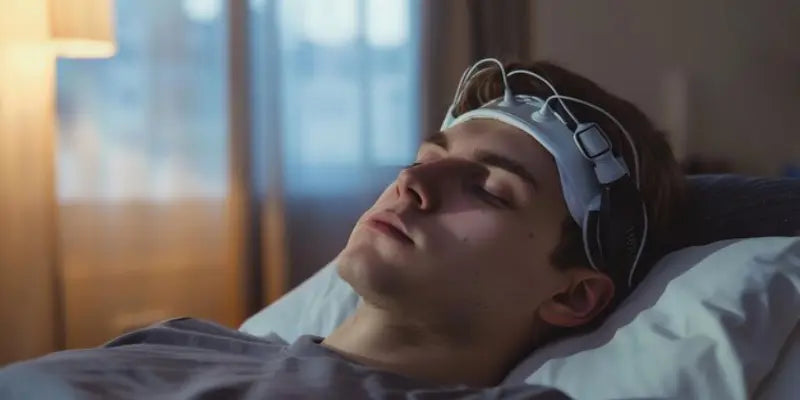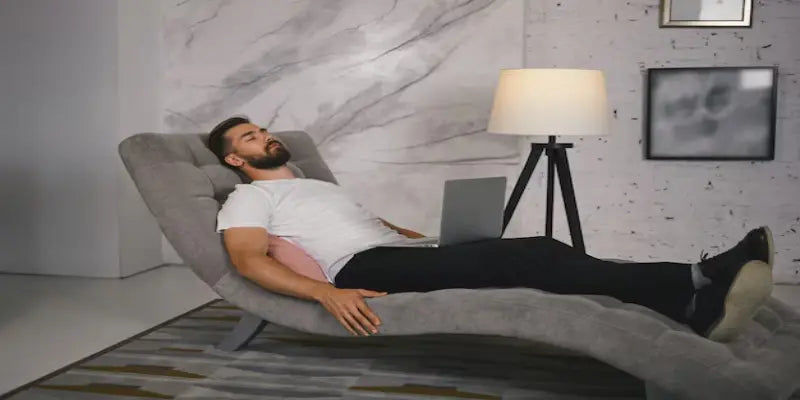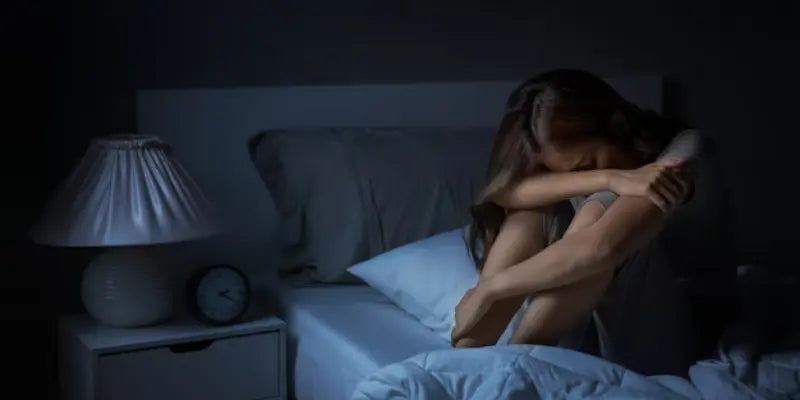
What is Orthosomnia? Is Your Sleep Tracker Really Causing Sleep Troubles?
Do you use a wearable device or app to monitor your sleep? Do you ever feel stressed out when you don't meet your sleep goals? These devices can be helpful, but sometimes they might make you more worried about your sleep. This problem is called orthosomnia. If your obsession with sleep interferes with your daily life, you may have orthosomnia. In this blog, we’ll learn what orthosomnia is and how to avoid it.
What is Orthosomnia?
Let's break this down using a simple example: You just got a new Apple Watch and are excited to use its sleep tracking feature. You wore the watch all night and monitored how much you slept and what stages of sleep you experienced. You start wearing the watch every night and using the sleep tracker every day. You start to feel stressed because you believe your sleep is not perfect. You become anxious about it, and it starts to affect your sleep quality. This is known as orthosomnia.
Orthosomnia is when you become too obsessed with tracking your sleep. You might check your sleep tracker all the time and worry if your sleep isn’t perfect. This can make you anxious and even affect your sleep quality.
How Sleep Trackers Work
Sleep trackers measure things like how long you sleep and how often you wake up. They can also track your sleep stages, like light or deep sleep. Sleep trackers use a variety of sensors to monitor sleep, including accelerometers, sound sensors, pressure sensors, and radar sensors. Many people use these devices to improve their sleep, but they can also lead to problems if you become too focused on the numbers.
Why Orthosomnia Happens
- Over-Reliance on Data: When you start to focus too much on data from your sleep tracker, When you focus too much on the numbers from your sleep tracker, you might start to feel stressed. This stress can make it harder to fall asleep.
- Unrealistic Expectations: Sleep trackers might not always be accurate. If you expect perfect sleep every night, you might be disappointed. Don’t rely on the data too much, instead of checking the tracker every single day, try to only see the data once a week.
- Sleep Anxiety: When you constantly check the sleep data can make you anxious. You’ll start feeling stressed and anxious thinking you are not sleeping well at night and this thought can keep you awake at night. Sleep trackers are to improve your sleep quality not to make it worse.
Signs of Orthosomnia
People with orthosomnia are extremely concerned about their sleep statistics. Signs of this syndrome include:
- Checking sleep data early in the morning or even in the middle of the night
- Reviewing sleep data several times a day.
- An overwhelming desire to get "perfect" sleep
- Feeling uneasy when looking at sleep-tracking data.
- Inability to sleep when sleep data cannot be tracked.
- Waking up feeling irritable, tired, or anxious
- Being distracted at work or school because of sleep data.
- Intense anxiety about sleep interferes with daily functioning.
- Making significant changes in one's daily routine based on sleep data
How to Avoid Orthosomnia
- Limit Tracking: Sleep tracking apps are only to monitor sleep and make necessary changes in your life to sleep better. They are developed to improve your sleep but sometimes they start to interfere with sleep quality. When we start tracking our sleep, after sometime we begin to enjoy it and become addicted to it. Use your sleep tracker less often. Try to check it only once a week instead of every day.
- Focus on Sleep Hygiene: Along with using a sleep tracker the right way, you also need to follow other tips to get better sleep at night. Your sleep environment plays an important role in improving your sleep quality. Make sure your sleep environment is comfortable. Keep your room dark and quiet, and go to bed at the same time each night. A fixed sleep schedule can help you sleep better at night.
- Practice Relaxation: For deep sleep at night, you must give your body time to unwind. A relaxing night time routine can make a major difference in your sleep quality. You can try relaxing techniques like deep breathing or reading a book before bed. This can help you feel less stressed about sleep.
- Trust Your Body: Your body knows how to sleep well. Trust that you will get the rest you need, even if your sleep tracker says otherwise. Don’t rely too much on the data, just follow healthy sleep habits, stress less and you’ll surely get the sleep you always wanted.
Conclusion
Sleep trackers can be useful tools, but they can also cause problems if you become too obsessed with them. If you think you might have orthosomnia, try to focus on good sleep habits instead of just the numbers. Remember, the goal is to sleep well, not to get a perfect score from your tracker.
If you think you might have orthosomnia, try to focus on good sleep habits instead of just the numbers. Always remember, the goal is to sleep well at night and not get the perfect score from the tracker.








